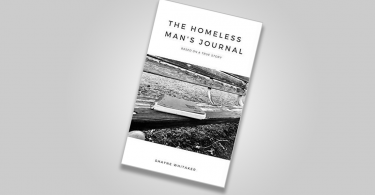University is the best time of your life, right? You live with your best friends, you study what you love, nights out become the norm, and you can pretty much do what you want, when you want. Right. There’s no doubt about it, university is great. But it’s not always easy. For people who can struggle with low-self esteem, the university environment can make you vulnerable. Pressure to achieve in essays and exams, pressure to do well enough to land that dream job after graduation, and being surrounded by those over achievers who hold multiple society positions, achieve perfect grades, and have the most enviable social life on campus. With all this going on around you, it’s understandable that students may not feel great about themselves. Following a particularly stressful week at university (coursework results? No, thank you), my own self-esteem had taken a hit, and I wanted to do something about it, to get back on track and start enjoying university again, as all students should. So, I turned to the one thing that’s never let me down before: books.
Generally, my literary love lies with fiction. It felt strange to be choosing a non-fiction book that I was going to read at my leisure, in my spare time, as opposed to frantically in the library pre-deadline. But checking out Melanie Fennel’s Overcoming Low Self-Esteem was probably the best decision I could have made at that point.
A clearer perspective
The structure of the book surprised me… I had expected complex, in depth psychological analysis, and wondered whether I’d even be able to understand it. On the contrary, this book was chronologically organised into helpful chapters, beginning with understanding what self-esteem is, moving to learning to understand self-esteem, and finally on to a step-by-step process of managing and preventing negative thoughts. Diagrams gave visual representations of some of the more complex concepts, and Fennel (course director in an advanced cognitive therapy course at Oxford University) even creates fictional characters with different self-esteem problems, and uses their experiences to demonstrate her points. These characters really helped me understand self-esteem – through considering others’ experiences, I was able to gain a clearer perspective on the topic, without my own emotions clouding my ideas. In my experience, problems with self-esteem can seem confusing and overwhelming- difficult to sort out in your own mind, let alone explain to anyone else- so it was really useful to have the issue of low self-esteem organised into such logical, digestible chunks, that made the problem seem a lot more manageable.
Reaching out to a wide audience
The book constantly emphasises that self-esteem issues vary greatly between individuals, and addresses different degrees and types of low-self esteem, meaning this book can certainly reach out to a wide audience. Admittedly, I didn’t feel as though all of the points in the book applied to me personally, but, as Fennel reminds, self-esteem is a personal thing. Equally, as I was reading, there were equally many times I felt the book really understood, and then put into words, the feelings I’d been struggling with.
Not a quick fix
Overcoming Low Self-Esteem is by no means a quick fix for low self-esteem. Fennel encourages readers to seek additional help if they feel it’s needed, and the book itself needs a little time and effort to make reading it worthwhile- each chapter suggests making notes, or keeping records of thoughts and emotions over a period of time. This can seem a little daunting- not only do you have to set time aside; additionally, the prospect of keeping track of self-critical thoughts probably won’t exactly fill readers with joy. However, ideas such as making a Positives Notebook, are much more appealing, and are a simple but effective way to feel good about yourself.
All in all, I’d say my first experience of reading a ‘self-help’ book has been a positive one- I’m still one hundred percent in favour of escaping into a novel as a form of relaxation and stress relief, but this time, I’m glad I chose a book that addressed the problem and helped me see things a little more clearly.
Happy #WorldBookDay! We’ve compiled a list of psychological books that may be useful! http://t.co/1VvCrLDFzG pic.twitter.com/pDeLHxNFiI
— Harley Therapy (@HarleyTherapy) March 5, 2015








